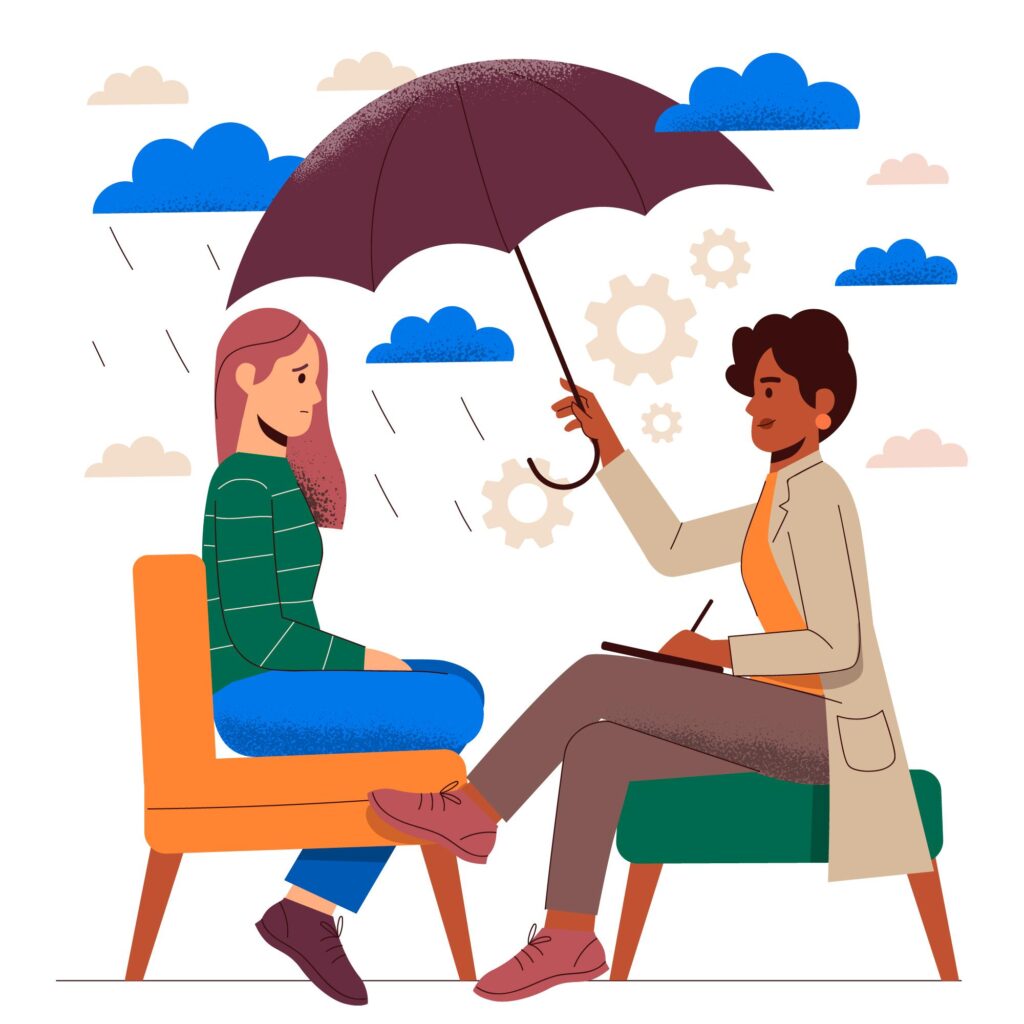Relational trauma, also known as interpersonal trauma, is a silent but pervasive force in many lives. It occurs when individuals endure a constant barrage of unhealthy dynamics, betrayal, manipulation, or other detrimental behaviours within their relationships. This form of trauma often takes root within family units, romantic relationships, close friendships, or other interpersonal connections, leaving deep emotional scars that can be challenging to overcome.
How Common is Relational Trauma?
Encountering ‘toxic,’ ‘gaslighting,’ or ‘narcissistic’ behaviours is unfortunately not uncommon in our society. These experiences can lead to the development of relational trauma symptoms, impacting our mental and emotional well-being. In some cases, individuals may even be diagnosed with Complex Post-traumatic Stress Disorder (CPTSD), as classified by the WHO International Classification of Diseases (ICD 11).
Impact of Relational Trauma on Well-being and Relationships
Relational trauma significantly impacts one’s well-being. Survivors often struggle with issues such as trust, self-esteem, self-worth, and attachment difficulties. Beneath the surface, feelings of shame, grief, guilt, and resentment may lurk, driving individuals to dissociate or numb themselves in an attempt to cope with overwhelming emotions.
In the realm of interpersonal relationships, the effects of relational trauma can manifest in various ways. Survivors may find it challenging to set boundaries, assert their needs, or say ‘no,’ as they feel responsible for managing others’ emotions. Their sensitivity to perceived rejection or abandonment may lead to a deep-seated belief that they are alone in their struggles, fostering feelings of loneliness, isolation, and disconnection from others.
Common Types of Relational Trauma
Childhood relational trauma is among the most common types encountered in my therapeutic practice. Whether stemming from unmet basic needs, physical mistreatment, or emotional neglect, such experiences can have profound and lasting effects on an individual’s well-being. The disruption of the child-caregiver bond can lead to insecure attachment styles, impacting social development and mental health outcomes in adulthood.
Relational Trauma and Attachment Styles
Attachment wounds is an early form of relational trauma. A caring, predictable and consistent child-caregiver bond helps to establish a secure attachment style. This aids healthy development, self-confidence, self-regulation, and a blueprint for engaging in other relationships.
When there is a disturbance in the child-caregiver link, such as improper responses to a baby’s distress, a lack of affection, abusive behaviour, or the caregiver’s absence, the child can have a traumatic experience. Trauma connected with this important bond can result in an insecure attachment style. Consequently, a variety of problems ranging from poor social development to serious mental illness.
It’s also worth noting that adults who have experienced relational trauma might change their attachment style from secure to insecure as a result.
Adults with insecure attachment styles may find it difficult to quit a relationship, so they stay in detrimental ones for far too long. They may appear clingy, as if they are extremely worried that people would dislike them or leave them. Some adults find it difficult to grow emotionally close to their partners because intimacy is foreign to them. They might notice a pattern of unhealthy interpersonal dynamics.
Identifying Signs and Symptoms
Trauma is personal, and everyone reacts differently to it. While CPTSD is a possible outcome for someone who has suffered relational trauma, not everyone who has experienced it will be diagnosed with CPTSD.
In addition to PTSD symptoms like flashbacks, avoidance, increased emotional reactivity and negative beliefs about oneself, CPTSD also include symptoms like problems in affect regulation and difficulties in sustaining relationships with others.
In the meanwhile, only a psychiatrist is qualified to diagnose a mental illness like CPTSD. However, it’s important to know that you don’t need a medical diagnosis to seek therapy if relational trauma is hindering you from reaching your goals.
Healing for Relational Trauma

To those struggling with relational trauma, know that healing is possible. Many have recovered from trauma and blossomed into their most mature and true selves.
Journalling may be a good starting point to expand your thoughts, feelings, and identify the patterns (or triggers). Stay curious and compassionate while you journal, as it is your map to healing.
Recovering from relational trauma will likely involve engaging in multi-dimensional work, given its complexity and multi-layered nature. There are attachment wounds and the need for relational healing. Nonetheless, both of which are possible in a safe, supportive relationship with a trauma therapist.
Therapeutic Approaches
In working with relational trauma survivors, establishing a secure and supportive therapeutic relationship is paramount. The recovery includes assisting them in emotional regulation, unpacking negative thoughts and feelings, and rebuilding a positive self-image. Eye-Movement Desensitization Reprocessing (EMDR) works well for processing traumatic experiences. If there are also unmet developmental needs, Ego-state therapy intervention works wonderfully for repairing attachment wounds.
Additional Resources
I invite you to visit my website if you are interested in learning more about relational trauma or seeking support. In addition, I recommend exploring readings such as “In Sheep’s Clothing: Understanding and Dealing with Manipulative People” by George Simon and “If He’s So Great, Why Do I Feel So Bad?: Recognizing and Overcoming Subtle Abuse” by Avery Neal for further insight into this complex topic.
Summary
Understanding relational trauma isn’t just about awareness; it’s about acknowledging its impact and actively seeking healing. Through therapy, self-reflection, and compassion, individuals can navigate trauma, reclaiming their sense of self and fostering healthier relationships. Healing is possible, and you deserve the inner peace that comes with it.
You are also always welcome to contact me if I might be able to support you as you journey forward.
[Photos credit: Freepik.com]

